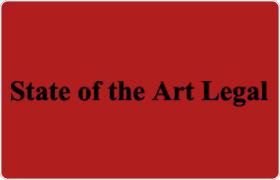Miami-Dade County, FL White Collar Crime Lawyers
Sponsored Law Firm
-
 x
x

Click For More Info:
-
State of the Art Legal
200 S.E. 1st Street Suite 505 Miami, FL 33131» view mapCriminal Defense Law Expert Legal Defense
If you're facing a difficult situation, you may benefit from having a lawyer from State of the Art Legal represent you. Call our office in Miami, FL, to set up your appointment.
800-826-0121
Ayuban Antonio Tomas
✓ VERIFIEDTax, Criminal, Tax Litigation, Felony, White Collar Crime
A. Antonio Tomas is a Board Certified Tax Lawyer, Board Certified Criminal Trial Lawyer and a Certified Public Accountant. Mr. Tomas's practice foc... (more)
Jeffrey S. Weiner
International, Federal Appellate Practice, White Collar Crime, Criminal, Civil Rights
Status: In Good Standing
FREE CONSULTATION
CONTACTDonald I. Bierman
Criminal, Licensing, Professional Responsibility, White Collar Crime
Status: In Good Standing
Ronald Joseph Manto
Federal Appellate Practice, White Collar Crime, Misdemeanor, Felony
Status: In Good Standing Licensed: 30 Years
FREE CONSULTATION
CONTACTClayton Reed Kaeiser
Litigation, White Collar Crime, DUI-DWI, Criminal
Status: In Good Standing Licensed: 42 Years
Charles Clifford Harper
White Collar Crime, Elder Law, Business & Trade, Banking & Finance
Status: In Good Standing Licensed: 51 Years
Paul J Donnelly
White Collar Crime, Misdemeanor, Felony, Criminal
FREE CONSULTATION
CONTACTNelson Camilo Bellido
Litigation, Employee Rights, White Collar Crime, Criminal
Status: In Good Standing Licensed: 32 Years
 Joshua Alexander Miami, FL
Joshua Alexander Miami, FL Practice AreasExpertise
Practice AreasExpertise

